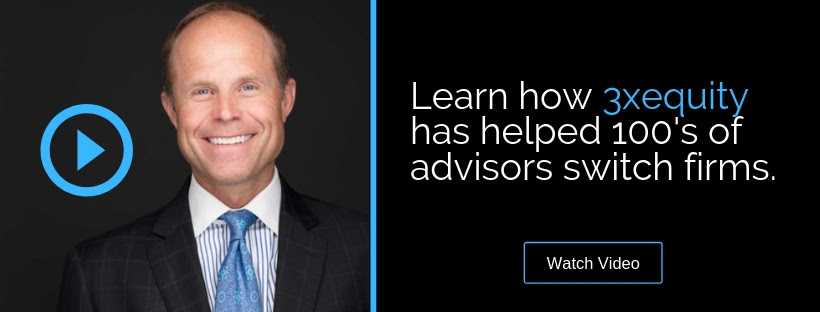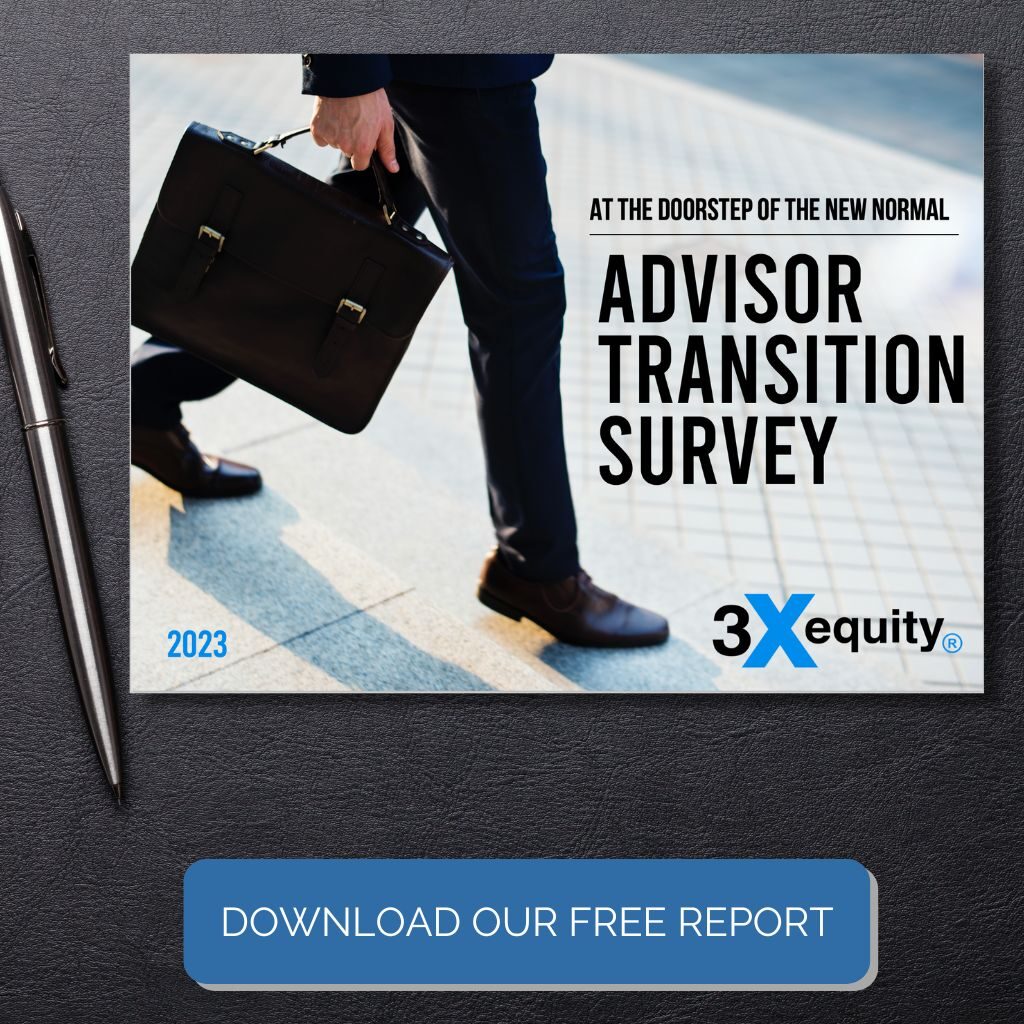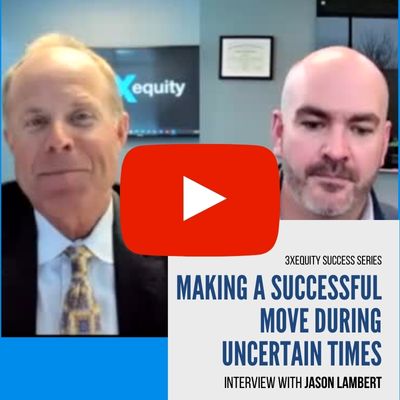Financial advisors often determine the valuation of their practice only near the time they plan to exit the practice. Worse, many do not have a solid, objective method for determining that valuation. According to the 2015 Fidelity RIA benchmarking study, only about 42% of RIAs undertake regular valuations on their own, and only about 52% have an agreed-upon formula for the purpose of such valuation. Knowing the value of the practice is not only an essential element of a good succession plan, it is also a good tool for growing the practice long before the financial advisor’s exit.
Financial advisors should obtain a valuation regularly because various changing aspects of their practice affect the valuation, including:
- Aging population of financial advisors – According to Cerulli Associates, about 43% of financial advisors are at or close to retirement age. For financial advisors moving closer to retirement age, a well-defined succession plan should include an external valuation of the practice. This valuation should identify the drivers of growth for the practice so as to maximize the value of the practice at the time of actual succession.
- Changing demographics of clients – With Baby Boomers quickly moving into retirement, the assets under management of financial advisors may stagnate and erode. Most of the growth in assets has been and will likely continue to come from the assets of new clients. Recognizing this demographic change, reviewing and understanding the practice’s client base and the impact of this demographic shift on revenue is important to maintaining and improving practice valuations.
In addition, financial advisors must choose carefully which method of valuation they use:
- Disparity in practice valuations between sellers and buyers – Because different methodologies can be used to create a practice valuation, the buyer and seller may be working from significantly different practice valuations. Valuations based purely on revenue generation may give the seller a much higher value than what buyers may be willing to pay. From a buyer’s perspective, growth and sustainability of the bottom line may be more relevant than current revenue generation capabilities. Undertaking an external valuation helps sellers get a reality check on the market value of the practice and enables them to make necessary changes in their business model for more effective negotiations at the time of sale.
- Evolving market structures – The market value of a practice needs to address evolving market structures, such as online service delivery models, increasing technological integration, and more comprehensive financial services being provided. Traditional methods of valuation that are purely based on the revenue of the practice do not take these factors into account.
Valuation of a practice should not be viewed only as a part of an exit strategy: it can also be undertaken to identify the drivers of growth to maximize the practice’s value. The key drivers of valuation are those factors on which buyers put a premium at the time of sale.
Based on industry input, the 2015 Fidelity RIA benchmarking study identifies eight key valuation drivers, which are categorized into fundamental and variable drivers. The fundamental drivers include size of the practice, which is believed to be directly correlated to value; revenue growth; structure and diversification; and organizational structure that is defined by quality of management. Leadership quality; cost structure and scalability; and investment management capabilities are among a few variable drivers that the study defines.
Importance of external valuation
The argument for external valuation of the practice is driven by the need to understand the value of the practice based on the buyer’s perspective. This need is also highlighted by the fact that “just 38% of RIAs have an advanced understanding of what drives RIA business valuation.” (2015 Fidelity RIA benchmarking study) Often financial advisors arrive at a ballpark figure for the practice value that is based on twice the revenue of the last year. This ballpark figure does not take in to account the nuances of the business, such as asset concentration, client demographics, etc.
Luckily, specialized valuation services for financial advisory services exist in the market today. Easy access to online valuation is provided by 3xEquity through its Practice Valuation Optimizer Tool, which provides instant equity value of a practice. Based on industry norms for valuation, such tools help financial advisors get a more realistic estimate of practice value. Financial advisors looking to improve their firm’s valuation before retirement can use these online tools to create reports after organization or efficiency changes to determine how those changes affected the valuation.
For financial advisors who are closer to retirement, another important factor that impacts the valuation of the practice are the deal terms that influence the actual payout. The variables in the deal, such as cash payouts, equity considerations, terms of payment, etc., will all have an impact on the final value that is received by the seller. Identifying and understanding the various options of the deal terms can be undertaken through external agencies. For example, 3xEquity has an online Deal Terms tool that provides financial advisors an instant valuation on various forms of deals from all equity, customized, and cash flow deals.
With the growing complexities in the financial advisory market, understanding the need for valuation and seeking external input in this process is a starting point. Identifying and leveraging the factors that impact valuation of the financial advisory practice is important not only when transitioning into retirement, but also for the overall success of financial advisor practices.




